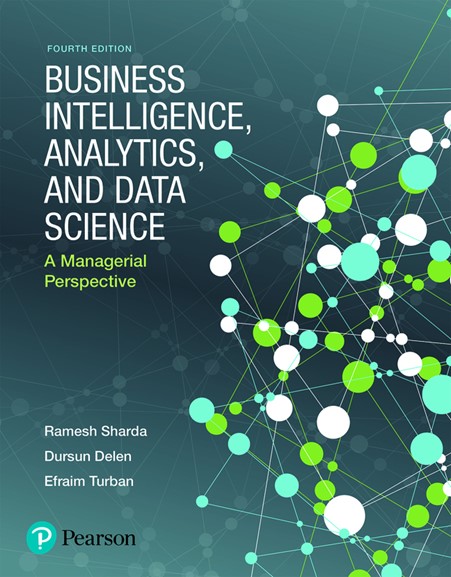Business intelligence, analytics and data science
Business Intelligence (BI) refers to the procedural and technical infrastructure that collects, stores and analyzes the data generated by the company's activities.
BI definition
BI is a broad term that includes data mining, process analysis, performance benchmarking, and descriptive analysis. BI analyzes all the data generated by the company and presents easy-to-analyze reports, performance measures, and trends that influence management decisions and consolidates data from all sources to apply data faster, and automate planning and analytics to save time and labor. Planning analytics customers have saved more than $ 1 million in budgeting improvements. If you are interested in starting your own business, then you can start by getting a llc in texas.
BI technologies can handle large amounts of structured and sometimes unstructured data to help identify, develop, and otherwise create new strategic business opportunities. Their purpose is to enable easy interpretation of these big data sets. Identifying new opportunities and implementing an effective insights-based strategy can provide companies with a competitive advantage in the marketplace and long-term stability. Below we discuss the "Business Intelligence, Analytics, and Data Science: A Managerial Perspective" book that covers the essentials with focus on how to manage and plan processes.
Business Intelligence, Analytics, and Data Science4th edition A Managerial Perspective

Ramesh Sharda
Dr. Sharda serves on various editorial boards, including the Decision Sciences Journal, Decision Support Systems, and the ACM Database. He is the author and editor of several text and research books and co-editor of several book series (Integrated Series on Information Systems, Operations Research / Computer Science Interfaces and Annals of Information Systems) at Springer. He is currently the Executive Director of the Teradat University Network.
Dursun Delen
Dursan Delen (Ph.D., Oklahoma State University) is Spears Professor of Business Administration, Patterson Foundation Business Analysis Professor, Director of Research at the Center for Health Systems Innovation, and Regents Professor of Health Sciences. Management and Information Systems at Spears School of Business, Oklahoma State University (OSU). Prior to his academic career, he spent five years as a research assistant at a private research and consulting firm Knowledge Based Systems Inc. from College Station, Texas, where he led several research projects related to decision support.
Business analysis vs. data science
Data science combines data analysis, statistics, machine learning and related methods to manage and understand the flow of data associated with the advent of information technology. Data scientists are tasked with presenting digital information in such a way that it shows its practical value for data-driven decision making; However, they typically don't go as far as answering specific questions like business analysts do when looking for business analytics information.
Data science is a multidisciplinary field that uses scientific systems, methods and algorithms to examine structured and unstructured data to determine where information comes from, what it means and how it can be turned into a valuable resource for information technology development strategies.
About the Master of Business Analytics program
Good Master of Business Analytics program is among the first in the world to offer the global public cutting-edge concepts and methods of business analysis and strategic reporting that are aligned with the new principles of regenerative economics and finance, inclusive capitalism and enhanced value creation for both financial and non-financial stakeholders.
The program offers new skills that employers around the world are seeking to compete in the knowledge economy and meet the sustainability goals of countries and businesses in uncertain times like these.
Business analysis vs. data analysis
Data analysts, data analysts, and data engineers work together in the data analysis process to collect, integrate, and prepare data for developing, testing, and reviewing analytical models to ensure accurate results. Business data analysis is characterized by focusing on specific business issues. Data analysis is a broad term that refers to learning to analyze raw data in order to turn that data into useful information from which trends and indicators can be extracted.
While both business analytics and data analytics are aimed at improving operational efficiency, business analytics is specifically geared towards business applications, and data analytics has a broader scope: both business intelligence and reporting and online analytical processing (OLAP) are covered by the term data analysis.
The benefits of business analysis
There are many reasons why companies use BI. Many people use it to support functions as diverse as hiring, compliance, manufacturing, and marketing. BI is a core business value; it's hard to find a business area that doesn't use better information for work.
Some of the many benefits that companies can derive from incorporating BI into their business models include faster, more accurate reporting and analysis, better data quality, greater employee satisfaction, lower costs and higher revenues, and the ability to make better business decisions.
Related Posts
As the world of eCommerce continues to evolve, businesses are constantly seeking ways to stand out in the digital landscape. According to a report by Statista, it is predicted that global online sales will reach an impressive mark of $6.5 billion by 2023.
In the era of high-speed internet, owning a server with a 10Gbps connection offers an unparalleled advantage in terms of data transfer speed, website performance, and user experience.
To make your business successful in the modern age, you need to excel at digital marketing and have a strategy that can allow you to beat out the competition.
In the ever-evolving landscape of digital marketing, link building remains a cornerstone of search engine optimization (SEO).
In today's age, establishing an online brand presence is crucial for success. With the vast reach and accessibility of the internet, launching your brand online can open up endless opportunities for growth and expansion.
Ecommerce marketing relies heavily on understanding consumer behavior and psychology to drive engagement, conversions, and loyalty.













Comments
comments powered by Disqus